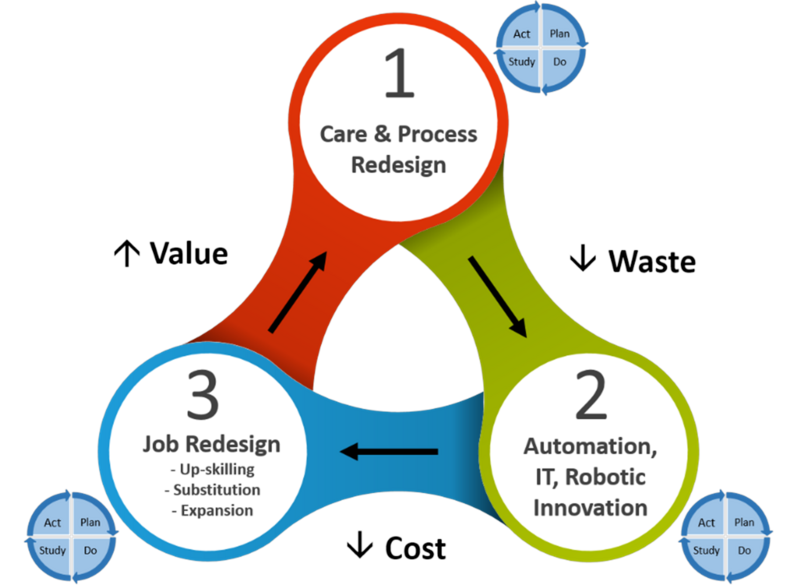ATD Blog
Helping Learners Take Charge of Their Skill Development
Mon Jun 28 2021

Content
How does a 10,000-employee workforce in a public hospital develop skills and capabilities differently from the traditional learning and development practices?
How does a 10,000-employee workforce in a public hospital develop skills and capabilities differently from the traditional learning and development practices?
Content
We start by drawing inspiration from Malcolm Knowles’s adult learning theory—andragogy— which is anchored on five assumptions of adult learners. We then focus on the concept of the self-directed individual—someone who accumulates a reservoir of experiences through their working journey and an increasing resource for learning.
We start by drawing inspiration from Malcolm Knowles’s adult learning theory—andragogy— which is anchored on five assumptions of adult learners. We then focus on the concept of the self-directed individual—someone who accumulates a reservoir of experiences through their working journey and an increasing resource for learning.
Content
In a hospital setting, the readiness to learn has oriented itself away from a postponed application of knowledge and toward immediate application. The needs have shifted, learning must be stackable, and the acquisition of knowledge needs to be accessible anytime, anywhere through digital modalities. It also requires a learner-centered focus—learn-do-share—whereby learning needs to be collaborative and social and happen at the proximity of the workplace.
In a hospital setting, the readiness to learn has oriented itself away from a postponed application of knowledge and toward immediate application. The needs have shifted, learning must be stackable, and the acquisition of knowledge needs to be accessible anytime, anywhere through digital modalities. It also requires a learner-centered focus—learn-do-share—whereby learning needs to be collaborative and social and happen at the proximity of the workplace.
Enter the Learning Needs Assessment
Content
At Tan Tock Seng Hospital, the annual learning needs assessment (LNA) is part of the staff’s performance discussion with their managers. Discussions focus on support staff’s career development, aligning coaching conversations that will highlight potential opportunities to develop their skills and capabilities so they can navigate their jobs today and tomorrow as well as perform their roles beyond hospital walls and into the community at large.
At Tan Tock Seng Hospital, the annual learning needs assessment (LNA) is part of the staff’s performance discussion with their managers. Discussions focus on support staff’s career development, aligning coaching conversations that will highlight potential opportunities to develop their skills and capabilities so they can navigate their jobs today and tomorrow as well as perform their roles beyond hospital walls and into the community at large.
Content
The first step is to have a foundation and proper tool set that supports the learning needs exercise. At the hospital’s Centre for Healthcare Innovation (CHI), the people development (PD) team develops this tool set by curating relevant programs in an integrated learning catalog. The catalog ensures that it supports the entire learning direction of the organization through its content curated with the help of input from all educational units within the CHI and other senior management. A structured approach each year ensures that the learning direction is reviewed and redesigned to support the ever-changing institution and community needs.
The first step is to have a foundation and proper tool set that supports the learning needs exercise. At the hospital’s Centre for Healthcare Innovation (CHI), the people development (PD) team develops this tool set by curating relevant programs in an integrated learning catalog. The catalog ensures that it supports the entire learning direction of the organization through its content curated with the help of input from all educational units within the CHI and other senior management. A structured approach each year ensures that the learning direction is reviewed and redesigned to support the ever-changing institution and community needs.
Content
The integrated learning catalog provides learning opportunities across various modalities, such as digital, blended, and face-to-face. This content is offered locally and internationally by internal faculty and external subject matter experts.
The integrated learning catalog provides learning opportunities across various modalities, such as digital, blended, and face-to-face. This content is offered locally and internationally by internal faculty and external subject matter experts.
Applying What the LNA Uncovers
Content
With the learning needs assessment on hand, the PD team outlines skill sets and creates opportunities and experiences that will help staff deepen their individual professional skills vertically so that they perform their jobs well and are considered to be at the top of their professional license. Horizontal capabilities are then developed by identifying complementary strategic skills that will enable individuals to navigate across a myriad of experiences, challenges, and community conditions.
With the learning needs assessment on hand, the PD team outlines skill sets and creates opportunities and experiences that will help staff deepen their individual professional skills vertically so that they perform their jobs well and are considered to be at the top of their professional license. Horizontal capabilities are then developed by identifying complementary strategic skills that will enable individuals to navigate across a myriad of experiences, challenges, and community conditions.

Content
An example of a skill set would be how every staff member is trained with an innovation acumen through our Innovation Cycle model. The model helps us shape our mental models to continuously develop job mastery. This means reviewing how staff must do their jobs better and differently by innovating new solutions for care and transform processes to support a population that’s aging fast. It also may mean recreating jobs to address a shrinking workforce.
An example of a skill set would be how every staff member is trained with an innovation acumen through our Innovation Cycle model. The model helps us shape our mental models to continuously develop job mastery. This means reviewing how staff must do their jobs better and differently by innovating new solutions for care and transform processes to support a population that’s aging fast. It also may mean recreating jobs to address a shrinking workforce.
Content
For example, a program in the MyCare series provides staff with tools to review specific care and process redesign. The application has them walk through a framework and methodology that helps them builds skills and experiences by applying a real-work issue that will ultimately produce a prototype they can test. It then offers feedback gathered to further refine the new process or care procedure to ensure a smooth and successful implementation on the job.
For example, a program in the MyCare series provides staff with tools to review specific care and process redesign. The application has them walk through a framework and methodology that helps them builds skills and experiences by applying a real-work issue that will ultimately produce a prototype they can test. It then offers feedback gathered to further refine the new process or care procedure to ensure a smooth and successful implementation on the job.
Nurturing New Skills and New Mindsets
Content
Building resilience and mindfulness is paramount in our development plans. The goal is to have learners nurture new mindsets as well as manage new skills and capabilities. This helps them address emerging challenges and demands, such as a growing cadre of digital resources. As healthcare becomes increasingly digital, the workforce also needs to be equipped with a digital learning ecosystem.
Building resilience and mindfulness is paramount in our development plans. The goal is to have learners nurture new mindsets as well as manage new skills and capabilities. This helps them address emerging challenges and demands, such as a growing cadre of digital resources. As healthcare becomes increasingly digital, the workforce also needs to be equipped with a digital learning ecosystem.
Content
We are taking seriously the idea of leading ourselves at Tan Tock Seng Hospital. We want to build an organization that lives collective leadership, ensuring that accountability and responsibility is distributed and not just at the top.
We are taking seriously the idea of leading ourselves at Tan Tock Seng Hospital. We want to build an organization that lives collective leadership, ensuring that accountability and responsibility is distributed and not just at the top.
Content
One way we’re doing this is by building and nurturing a strong coaching culture that supports individuals across the hospital and will help employees realize the potential of every individual. We also believe that by employing a learning and development system that allows learners to pull content anytime, anywhere when it’s required, the organization builds an empowered workforce with lifelong learning mental models. While we are still new to this journey of future-proofing a digital workforce, we will continuously use big data to analyze and improve our approach.
One way we’re doing this is by building and nurturing a strong coaching culture that supports individuals across the hospital and will help employees realize the potential of every individual. We also believe that by employing a learning and development system that allows learners to pull content anytime, anywhere when it’s required, the organization builds an empowered workforce with lifelong learning mental models. While we are still new to this journey of future-proofing a digital workforce, we will continuously use big data to analyze and improve our approach.
Leading the Way
Content
The people development team has to be a role model at the heart of this whole system. We all know that change is a constant and change seems to be getting faster and faster. Amid this backdrop, it is crucial that as the demands for better patient care grows, its paramount that the PD unit re-examines how its roles and skills are changing. In our next blog post, we will share how the people development unit is redefining its role and purpose to stay relevant and strategic in driving toward future-proofing the healthcare community and how being digital will be a new norm.
The people development team has to be a role model at the heart of this whole system. We all know that change is a constant and change seems to be getting faster and faster. Amid this backdrop, it is crucial that as the demands for better patient care grows, its paramount that the PD unit re-examines how its roles and skills are changing. In our next blog post, we will share how the people development unit is redefining its role and purpose to stay relevant and strategic in driving toward future-proofing the healthcare community and how being digital will be a new norm.
Content
Want to learn more? Join me during the ATD 2021 International Conference & Exposition for the session Every Learner a Content Creator'A Digital Learning Strategy.
Want to learn more? Join me during the ATD 2021 International Conference & Exposition for the session Every Learner a Content Creator'A Digital Learning Strategy.
